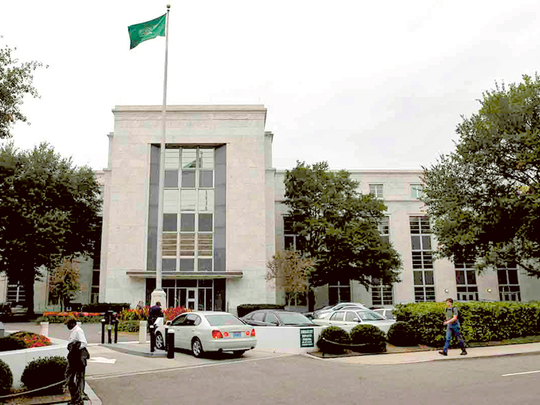
Dubai: A bill passed on Tuesday by the US Senate that will allow victims of the 9/11 terror attacks to sue the Government of Saudi Arabia has left analysts from the kingdom questioning both the political motivation and the timing of the legislation.
The bill — the Justice Against Sponsors of Terrorism Act, or Jasta — must pass the House of Representatives and earn presidential approval. As it stands now, President Barack Obama has said he will veto the bill.
Nevertheless, some Saudis believe the bill reveals the “real political and strategic intentions of the American mind” towards the kingdom. For others, Saudi Arabia “has nothing to hide”. Either way, Saudi Arabia-US relations will be negatively affected should the bill become law.
“It is very strange that they have done this at this time,” said Khaled Al Maeena, a Jeddah-based analyst and media consultant, commenting on the senate vote.
“There is no concrete evidence of Saudi government involvement in 9/11 attacks,” he told Gulf News. “But if the issue reaches the federal courts, we are ready for it. We have nothing to hide.”
Should Jasta become law, the victims’ families will have the right to sue any member of the Saudi government who is thought to have played a role in any element of the attacks that were carried out by 19 terrorists, 15 of whom were citizens of the kingdom.
The Saudi Arabian government has denied any involvement in the attacks, which killed nearly 3,000 people at the World Trade Centre in New York, the Pentagon in Washington and when a hijacked plane crashed into a field in Shanksville, Pennsylvania.
In 2004, a US Commission concluded that there is “no evidence that the Saudi government as an institution or senior Saudi officials individually funded the (Al Qaida terrorist) organisation”.
Despite repeated requests, Saudi foreign ministry officials would not comment to Gulf News on the passing of the legislation by the Senate and statements from the nation’s foreign minister, Adel Bin Ahmad Al Jubeir, that Riyadh would withdraw its US investments.
However, analysts questioned the possibility of cashing in on that debt.
“Is Saudi Arabia going to send empty boxes and fill them with money? The US might freeze the investments, like what they did with Iran and Pakistan,” said one Arab analyst speaking on the condition of anonymity.
The bill coincided with the US Treasury reporting that Saudi holdings of US debt stood at $116.8 billion (Dh429 billion) at the end of March. However, some investors noted that the Saudi Central Bank had said it owned nearly $600 billion dollars in notes.
“The mechanism to liquidate the massive Saudi investments is a very difficult one,” said Fahed Al Shafi, a Riyadh-based analyst.
“Regardless of the fate of the bill, unfortunately, the move reflects a setback in Saudi-American relations,” said Khaled Al Ferm, a Riyadh-based Saudi academic who heads a strategic studies centre.
“The bill reflects the negative role the US administration is playing towards the region and Saudi Arabia,” he told Gulf News. “It is also threatening the economic and investment relations between the two countries.”
Meanwhile, some Saudi analysts question the role of the public relations companies and lobby groups in Washington.
“The PR companies we hired, who have been taking millions of dollars, have proved to be utterly useless,” said Al Maeena.
“There are Saudis who can do a better job. We are willing to do it if we were given the chance,” he added.
One of the main issues, according to Al Shafi, is the outcome of the US presidential elections in November and how that will affect the fate of the bill.
The result of the elections will determine whether “to activate, or freeze, or reconsider the bill or even push it to a higher level”, Al Shafi said.
“All this depends on the new president, his political kitchen and what they are aiming for,” he said.
“Honestly, with this bill, they can blackmail the countries of the region. Blackmailing is not limited to Saudi Arabia. There are accusations against some figures in the Gulf, and in other issues, there are accusations against Arab and non-Arab countries that are believed to be supporting terrorism.”












